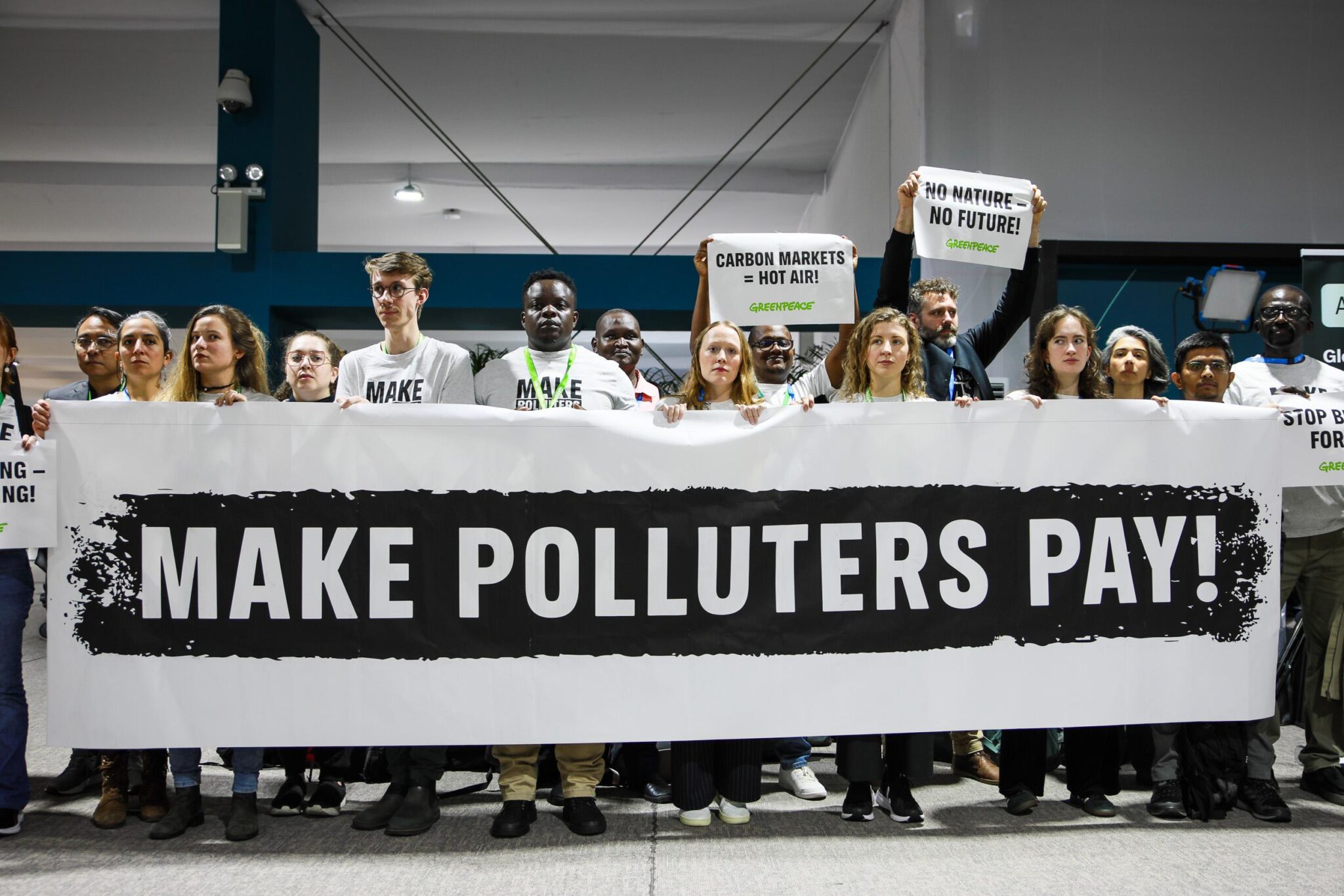
Greenpeace Slams COP29 Climate Finance Deal as ‘Climate Colonialism’ » Capital News
BAKU, Azerbaijan Nov 24 – Greenpeace has sharply criticized the outcome of the UN Climate Change Conference (COP29), branding the $300 billion annual climate finance goal as “climate colonialism” that betrays vulnerable nations.
Fred Njehu, a Pan-African political strategist with Greenpeace Africa, condemned the agreement, saying it mocks the principles of climate justice.
“This isn’t climate finance—it’s an insult to every African already suffering from climate disasters,” he said. “The Global North’s offer is pennies compared to the billions they continue to earn from fossil fuels.”
The deal, finalized after 33 hours of overtime talks, falls far short of the $1.3 trillion needed annually by 2035 to help climate-vulnerable nations mitigate and adapt to the growing impacts of climate change.
While the agreement includes public and private funding, Greenpeace argues it sidesteps the historic responsibility of wealthier nations, leaving communities in Africa and small island states to shoulder the devastating costs of a crisis they did not create.
Article 6 and Carbon Markets Criticized
The deal also included provisions for carbon markets under Article 6 of the Paris Agreement, a move Greenpeace decried as a “neo-colonial scheme.”
Dr. Lamfu Yengong, Greenpeace Africa’s Forest Campaigner, expressed concerns about the exploitation of Africa’s natural resources under the guise of carbon offsetting.
“Our forests and lands are not dumping grounds for wealthy polluters,” Dr. Yengong said. “These carbon markets are a ploy for rich nations to evade real emissions cuts while turning our communities into experimental projects for pollution permits.”
A Call to Action Ahead of COP30
The agreement has left developing nations and activists resolute in their calls for stronger commitments at next year’s COP30 in Belem, Brazil. Greenpeace’s Jasper Inventor described the deal as “woefully inadequate” and urged governments to stand firm against fossil fuel lobbyists who influence climate negotiations.
“The best and worst of multilateralism were on display in Baku,” Inventor said. “But people are fed up, and we won’t give up. We will persist because this is a fight for our collective future.”
A Missed Opportunity on Fossil Fuels
The conference also postponed critical decisions on phasing out fossil fuels until 2025, a delay Greenpeace warns could have catastrophic consequences. Njehu emphasized the need for urgent action, saying, “Real climate action means keeping fossil fuels in the ground, not trading pollution credits.”
As 2024 closes as the warmest year on record, activists stress that the urgency of climate action has never been greater. “We owe it to every displaced family, every flooded community, and every child born into this crisis to demand more,” Njehu added.
The outcome of COP29 may have left many disillusioned, but Greenpeace vows to amplify its fight for climate justice as the world’s attention turns to COP30.
About The Author